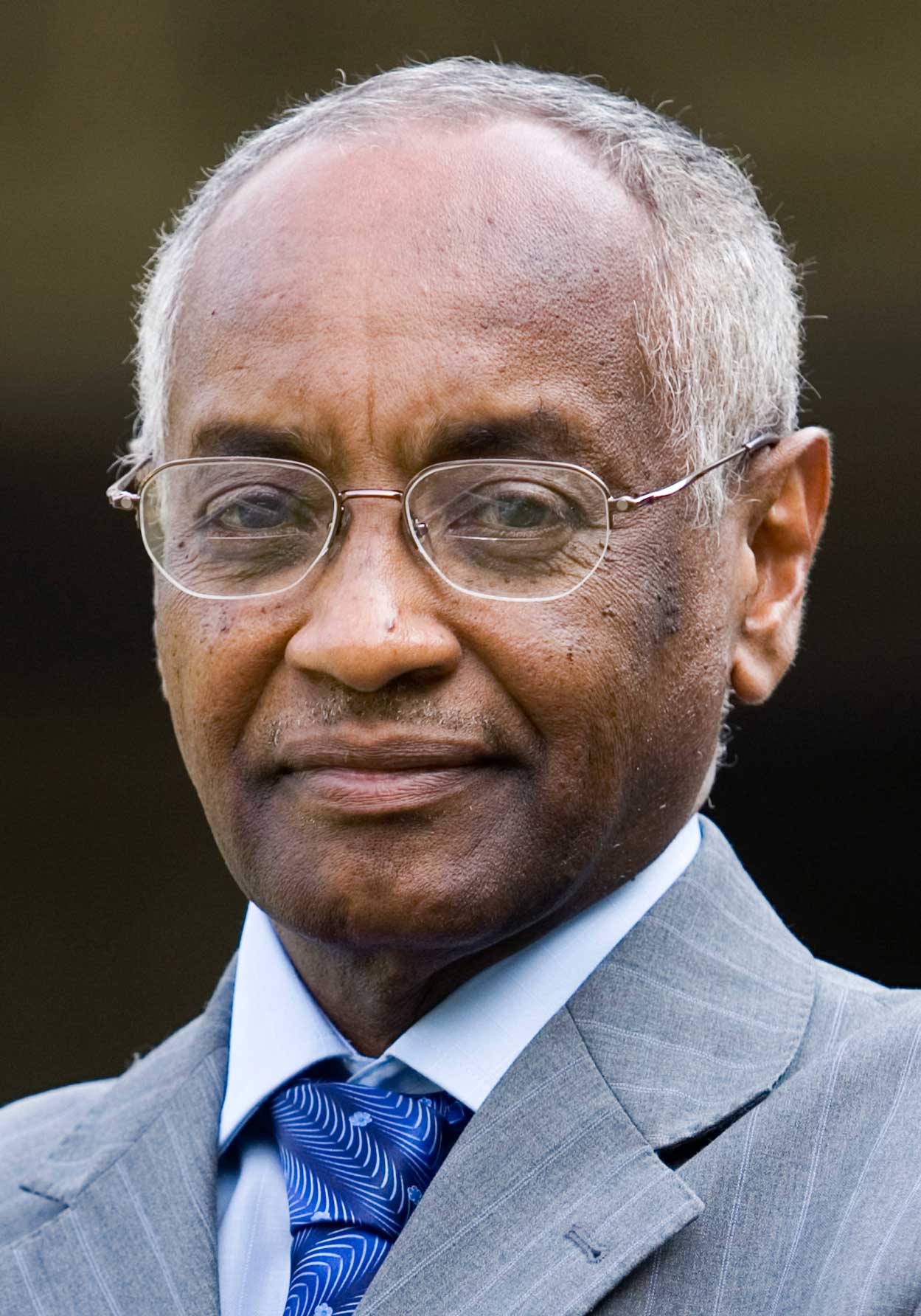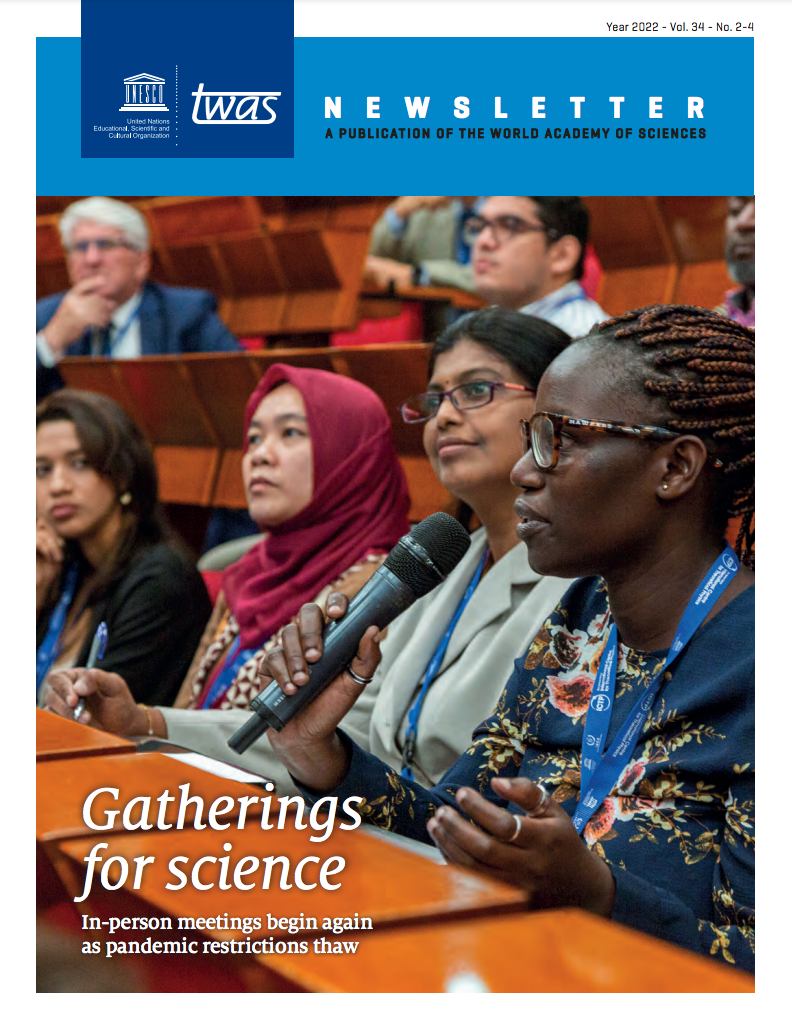 The SARS-CoV-2 virus is still among us, but thanks to the quick development of safe and effective vaccines, countries around the world are easing COVID-19 restrictions. I am proud to acknowledge that TWAS stands strong amid the pandemic and has been able to adapt to the many challenges posed by the COVID-19 crisis.
The SARS-CoV-2 virus is still among us, but thanks to the quick development of safe and effective vaccines, countries around the world are easing COVID-19 restrictions. I am proud to acknowledge that TWAS stands strong amid the pandemic and has been able to adapt to the many challenges posed by the COVID-19 crisis.
Thanks to this progress, we have also started organizing in-person or hybrid events again, and this newsletter is a testament to that. Sitting in the same room, sharing meals, or talking over a cup of hot coffee between conference sessions allow for more fluid conversation and encourage brainstorming. As a result, life-long friendships and fruitful professional collaborations are formed.
The Ernesto Illy Colloquia was our first event with a significant in-person component since the pandemic began. Through this event, young scientists conducting coffee-related research in the global South were able to connect with experts in the field and form connections with each other that could foster lengthy research collaborations.
Science and scientists do not live in a vacuum. Now, more than ever, the general public, including the younger generations, should have the chance to get in touch with scientific ideas, evidence-based suggestions, and rational thinking. Outreach events such as the international science festival Trieste Next are instrumental for engaging with the wider society, and can ignite the spark of curiosity in children, hopefully helping them to pursue careers in science.
 Although the benefits of in-person meetings are clear, we should not forget the benefits of hybrid and online events. The climate crisis is one, if not the most, serious threat to our families, friends, and countries—and the carbon footprint of international travel cannot be underestimated.
Although the benefits of in-person meetings are clear, we should not forget the benefits of hybrid and online events. The climate crisis is one, if not the most, serious threat to our families, friends, and countries—and the carbon footprint of international travel cannot be underestimated.
Attending an in-person event often means staying away from home for days at a time. But while travelling for a few days can be a great opportunity for personal and professional growth, this is a luxury that those of us who must care for elderly parents, sick relatives, children, or other people, cannot always enjoy. This is why we should make the most of what we have learned during the pandemic about online events and make sure our initiatives are as inclusive as possible.
While governments are lifting COVID-19 restrictions and many of us have returned to doing some, if not most, of our pre-pandemic activities, we should be careful not to forget the long-lasting impact the crisis had on us all, as well as how it exacerbated inequalities.
To beat the virus, we must follow the advice given by health experts, and make sure that whenever we gather together we do so in a way that is safe for ourselves and our communities. But I hope the stories told in this Newsletter also help us rediscover the beauty and power of our events, and the in-person, human connection they provide.
Mohamed H.A. Hassan
TWAS Immediate Past President

